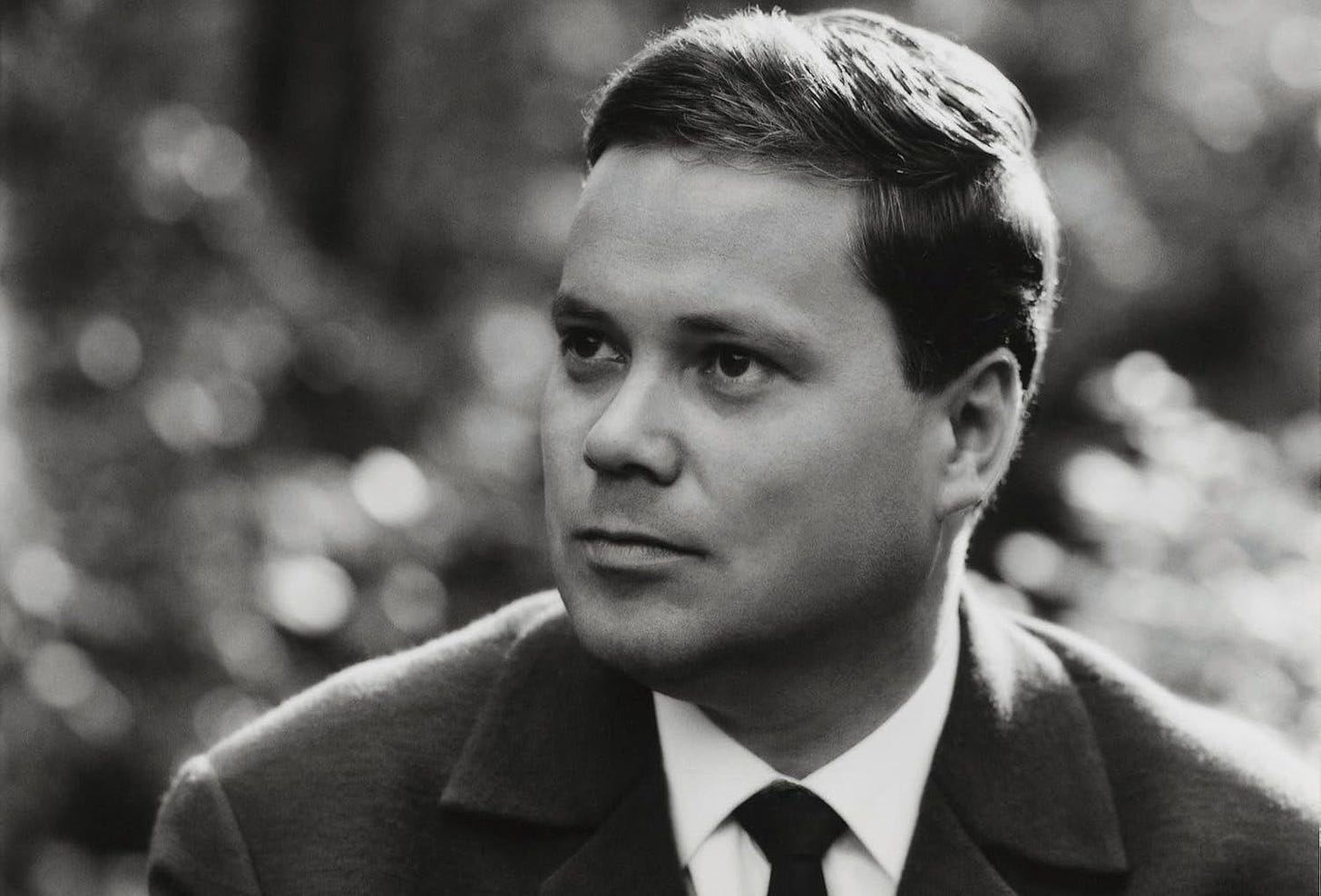Dietrich Fischer-Dieskau's Inner Life and Chaotic Surroundings
Art, war, politics, and the baritone at 100
“Recognizing the truth always brings disenchantment,” says the Commendatore in the Komische Oper’s new production of Don Giovanni — one of the many lines that Kirill Serebrennikov interpolates into the libretto via the Tibetan Book of the Dead. The director structures this Don Giovanni as a sort of journey through the Bardo: Giovanni is fatally wounded in his opening skirmish with the Commendatore, and the opera plays out as a long day’s journey into death. He also uses the Prague version of the work, which ends with Giovanni’s descent to Hell (dispensing with the final moralizing sextet) and, in this version, moves fluidly into a truncated version of Mozart’s Requiem, focusing on the 20 minutes or so that Mozart himself composed. The booming D Minor/Major rift of the infernal tragicomedy becomes the sober, plodding D Minor chords that open the Requiem.
I’ve followed Serebrennikov’s Mozart/Da Ponte cycle for the last two years,…



